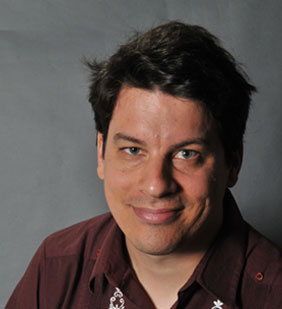
Benjamin Johnson
Biography
I am a historian of indigenous social and political responses to colonialism, particularly in Latin America. My primary research relates to Nahuatl speakers in central Mexico, but my questions and analyses are broad and comparative, reaching from lowland Maya areas to Andean populations to coastal and riverine Brazil.
Area of Expertise
Professor Johnson researches and teaches about Latin America, its antecedents, and wider connections. His research investigates local politics in central Mexico after the Spanish invasions of the sixteenth century, particularly the emergence and functioning of unofficial patterns of order. He is also interested in processes of informal association in nineteenth century Brazil. Professor Johnson teaches introductory classes in Latin American and world history, as well as specialized courses on the pre-Columbian Americas, comparative colonialisms, and historical methods.
Degrees
PhD, University of Chicago, 2011
MA, University of Chicago, 2005
BA, Northwestern University, 2002
Professional Publications & Contributions
- Pueblos within Pueblos: Tlaxilacalli Communities in Acolhuacan, Mexico, ca. 1272-1692 (University Press of Colorado, 2018).
Additional Information
My current book project, tentatively entitled Remaking the Hinterland: Commoners, Colonialism, and Social Order in Post-Conquest Texcoco and Teotihuacán, Mexico, offers a new vision of social and political change after the fall of the “Aztec” Triple Alliance in 1521. Basing my analysis in the divergent but broadly coherent histories of the poor majorities of central Mexico, I show the ways in which these ignored individuals and groups transformed traditional native institutions and also Spanish colonial intromissions, creating a durable and robust social order that outflanked both initial formulations.
Spanish disruption opened large social and political holes that neither traditional native institutions nor imported Hispanic ones were able to fill. Rather, these gaps were bridged by the uneven and composite efforts of poor central Mexicans to survive in a transformed landscape. As these efforts built into self-reinforcing networks and patterns of association, both society and politics were transformed.
Professor Johnson's CV
